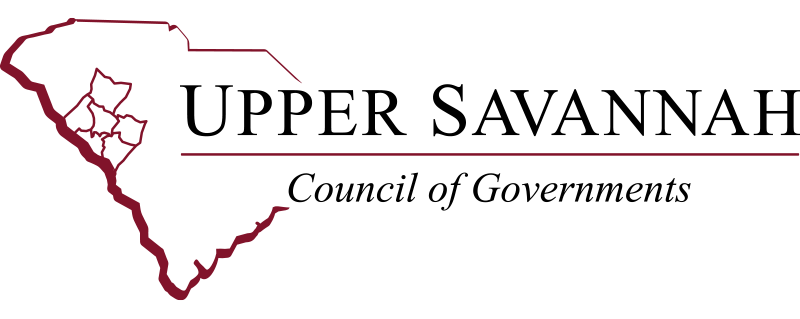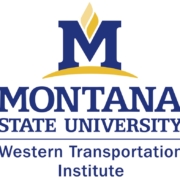Consultants from Montana Hoping to Help Create Transit Systems in Abbeville, Laurens and Saluda Counties
Two consultants from a far-away place are hoping to help create public transit systems for Abbeville, Laurens and Saluda counties, producing a feasibility study not intended to “sit on a shelf,” but to literally be put into motion.
David Kack and Rebecca Gleason from the Western Transportation Institute (WTI) located at Montana State University in Bozeman, Mt., came to South Carolina last week to meet face-to-face with citizens in the three counties who are interested in seeing public transit become available.
Kack and Gleason are working with Upper Savannah Council of Governments (USCOG) Government Services Director Rick Green on the project.
Green said an e-mail from the National Association of Development Organizations (NADO) last fall asked if there were any local transportation projects that might need technical assistance grant funding. Green replied that three of the USCOG Region’s counties – Abbeville, Laurens and Saluda – do not have public transportation. These three counties are among the last in the state that do not yet have a public transit option for at least a portion of the county.
NADO was awarded the grant from the U.S. Department of Agriculture, and one of the projects that will be completed from this grant will be the transportation feasibility study.
The goal of the study is to develop transportation options for the three counties, which are more than 2,000 miles from Bozeman.
“Why from Montana, so far away from South Carolina? Rick Green’s answer was because the Alaska folks are busy,” joked Gleason, who is a research engineer with WTI.
WTI began this project in March, reviewing other rural transit studies from the Upper Savannah Region dating as far back as 2010. Then they formed committees and had several online meetings and interviews with transit stakeholders.
Kack and Gleason flew in from Big Sky country last Monday for a three-day visit to Abbeville, Laurens and Saluda counties.
They started their visit by making a presentation to USCOG’s Aging Advisory Committee, in part because many citizens who need more public transit options are seniors.
“We live our lives by being mobile, whether it’s just going to the grocery store, socializing, educational opportunities, going to work, or getting to appointments. We live our lives by being able to get out and move around,” Kack told the committee.
“Unfortunately, mobility is very expensive. It’s actually the second highest expense (car payments, gas, insurance, vehicle repairs) behind housing.”
After meeting with the Aging Advisory Committee in Greenwood, Kack and Gleason visited Abbeville, Saluda and Laurens counties on consecutive days.
They learned face-to-face that “transportation challenges are a big issue,” Kack said. “People want to get this (issue) addressed. Rececca was talking about the previous studies that were done and someone said, ‘I just don’t want more studies. I want something to happen.’
“We reiterated that we also want to see something happen. I think one thing that makes us different than other consultants is I have helped start three transit systems. We don’t like writing reports that sit on somebody’s shelf. We like to see them implemented.”
Kack helped start a voucher program with Older Americans Act funding at the Deep East Texas Council of Governments. He has also helped start transit systems in Missouri and Montana.
“We know that seniors are often reluctant to ask a friend or family member for a ride,” Kack said. “Vouchers allow for them to reimburse family members or friends for rides to the grocery store or appointments.”
Kack said the lack of transportation affects many different groups.
“It can be income based,” he said. “It could be a disability that prevents you from driving. You might have a one-car family but if a family member is taking that to work, then everyone else is stuck. It’s expensive to own and operate a car.”
Medical appointments seem to be the most urgent need for transportation.
“Someone misses that dialysis appointment because of transportation and then misses a second one, then maybe it’s an ambulance to the emergency room. That’s a big expense,” Kack said.
Gleason and Kack made the most of their visits to the three counties.
“Part of what we are trying to do is come into the communities and say what are the challenges, what are those mobility needs, and find the best services,” Kack said. “We are going to look at a lot of different options. Fixed route (bus or van routes) or demand response (like Uber) aren’t always the best solution.”
Carpooling, vanpooling, volunteer drivers, voucher programs for gas reimbursement, once or twice per week medical or shopping van trips to cities (i.e., Greenville, Columbia, Augusta), expansion of current transit systems in the area, and communities contracting with micro transit companies like Via are among several considerations. Gleason recommends a mobility manager for the Region.
Also, it is possible that there could be different types of transit operating within the same county in order to respond more efficiently to specific needs. For example, a vanpool could take workers to an industry and home again daily while a smaller vehicle could be available by appointment to take people to medical facilities.
The main obstacles to rural transit in this region are cost, available vehicles, and hiring and training drivers.
WTI will complete its study in September, hoping that each of the three counties can find a solution that best fits their needs following months of online and in-person meetings.
“We can do a lot of good planning and hopefully somebody can pick up that ball and move it forward,” Kack said. “We will be around (after September) to help.”
Kack recommends that communities give their transit systems of choice time to achieve success.
“You will learn more in the first year of operating the system than all the planning you did prior to it,” he said. “Give it two to three years to catch on and see how it gets used. Give it enough time to really understand how it’s going to work.”




